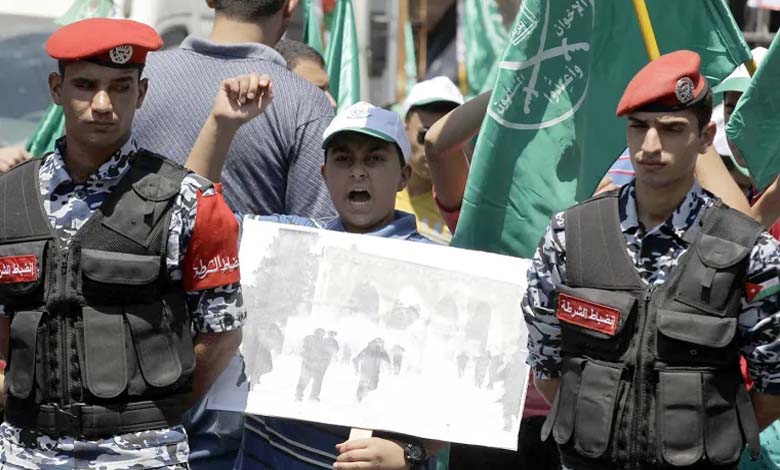Aftershocks of the Jordan Earthquake Deeply Divide Lebanon’s Muslim Brotherhood

The Muslim Brotherhood in Lebanon has fractured due to the aftershocks of a major organizational crisis in Jordan, amid a rapidly deteriorating regional landscape.
Sources said that severe internal rifts have struck the ranks of the “Jamaa Islamiya,” the Lebanese branch of the Muslim Brotherhood, especially in light of the increasing pressure it faces due to its cross-border affiliations and the Lebanese state’s efforts to reassert full control over the country and ban any armed activity — including that of the Brotherhood or others — on its soil.
-
Growing Calls to Ban the Muslim Brotherhood in Jordan After Terror Cell Uncovered
-
What Future Awaits the Muslim Brotherhood in Jordan?
While Lebanon’s need to control weapons predates Jordan’s official ban on the Brotherhood (designated a terrorist group in several Arab countries), the Lebanese Brotherhood views this regional development as a potential major threat.
The issue of the group’s armed wing, known as the “Fajr Forces,” is currently causing a major organizational crisis. A faction led by the movement’s historical leadership seeks to dismantle the wing and remove current leader Mohammad Takkoush, Secretary-General of the Jamaa Islamiya, from power.
Tensions escalated after the discovery in Jordan of a cell armed with rockets and drones, which led to the Brotherhood being banned in the kingdom and its operations there being swiftly dismantled.
-
The Muslim Brotherhood in Jordan… From Preaching to Arms? Details of the Foiled Plot
-
Dismantling of a Terror Cell Linked to the Muslim Brotherhood in Jordan: A Strategic Opportunity to Re-highlight the Group’s Threat in the Region
Veteran Brotherhood leaders, including Azzam Al-Ayoubi, believe that Mohammad Suhail Takkoush was appointed Secretary-General in Lebanon with backing from the Palestinian group Hamas, specifically its military council and former political bureau chief in Gaza, Yahya Sinwar. With Sinwar’s death in clashes with the Israeli army in Rafah in October, they believe it is now time for Takkoush and his military-security circle to step down.
Although Takkoush has not completed his term — elected in 2022 to succeed Al-Ayoubi — the historical leaders aim to oust him, arguing his selection went against their will and noting that he belongs to the Brotherhood’s fourth generation in Lebanon, one closely aligned with the Iranian axis.
-
7 Days Before the Parliamentary Elections… A Major Scandal for the Muslim Brotherhood in Jordan
-
Non-Licensed Muslim Brotherhood in Jordan Completes Formation of Its Executive Office
Power Struggles Over Control of the Movement
Recently, MP Imad Al-Hout, representing Jamaa Islamiya in Lebanon’s Parliament, has begun working to seize control of the movement, with support from Azzam Al-Ayoubi, a member of the international Brotherhood organization and former Secretary-General.
According to well-informed sources, Al-Hout’s latest moves come after Al-Ayoubi convinced the international Brotherhood to back efforts to retake control of the Jamaa. Coordination between the two men and their faction in Lebanon has been ongoing for months, following earlier failed attempts to remove Takkoush.
-
Aftershocks of the Jordan Earthquake Deeply Divide Lebanon’s Muslim Brotherhood
-
The Jordanian Street Rises Against the Muslim Brotherhood… New Facts Emerge About the Terrorist Cell
In this context, Al-Ayoubi has met, during international visits, with various Brotherhood leaders — including in Jordan and Syria — as well as with officials from a major regional country, allegedly to coordinate the group’s political plans.
Al-Ayoubi and his faction proposed that MP Al-Hout manage the group’s internal affairs in Lebanon, while Takkoush remains a symbolic figurehead until the end of his mandate in 2026.
This compromise was designed to avoid a full-blown conflict over Takkoush’s removal and early elections — a proposal supported by senior members Ahmad Al-Omari (who lost to Takkoush in the 2022 vote) and Ihab Nafea, head of the group’s political bureau.
-
Jordanian MPs Launch a Campaign Against the Muslim Brotherhood
-
The Muslim Brotherhood (International Organization) Incites Against the Jordanian State
Although Takkoush has rejected these efforts and resisted the attempt by Al-Hout and the historical leaders to reclaim control, the weakening support from Hamas and increasing pressure from the Lebanese state have tilted the balance toward the veteran faction.
Simultaneously, the Lebanese state is working to disarm Hamas in Lebanon, whose personnel reportedly number in the hundreds. In response, Hamas political bureau chief Khaled Meshaal has requested mediation from Lebanese figures, pledging that the group will not engage in armed activity from Lebanese territory and will adhere to its understandings with the government.
As a result, Takkoush’s role has been marginalized, with the political bureau — in coordination with Al-Hout and Al-Ayoubi — now overseeing internal management and arranging meetings with Lebanese officials. Some circles close to the Brotherhood’s historic leadership have also begun discussing the dissolution of the “Fajr Forces,” though this has been met with resistance from Takkoush’s loyal military and security faction, prolonging the internal power struggle.












